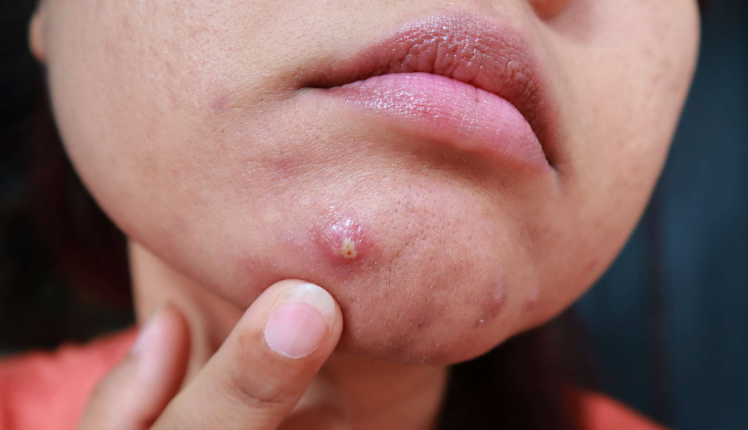Dealing with Big Acne on the Face: Causes, Treatments, and Prevention
Acne, especially large or cystic acne, can be both painful and frustrating. These deep, inflamed blemishes are not only difficult to conceal but can also impact self-confidence. Understanding their causes and exploring effective treatments can help you manage and prevent them.
What Causes Big Acne?
Big acne, often referred to as cystic acne, forms when pores become clogged with excess sebum (oil), dead skin cells, and bacteria. Unlike smaller pimples, cystic acne occurs deep beneath the skin, leading to inflammation and swelling.
Common causes include:
- Hormonal Fluctuations: Hormones during puberty, menstruation, or stress can trigger overproduction of oil.
- Genetics: A family history of acne increases your likelihood of developing it.
- Improper Skincare: Using comedogenic products or not cleansing properly can worsen acne.
- Diet: High-glycemic foods and dairy have been linked to acne flare-ups.
- Stress: Elevated stress levels can exacerbate acne by increasing oil production.
Treatments for Big Acne
Managing cystic acne often requires a combination of lifestyle changes, over-the-counter treatments, and professional interventions.
- Over-the-Counter Products:
- Benzoyl Peroxide: Reduces bacteria and inflammation.
- Salicylic Acid: Helps unclog pores and exfoliate dead skin cells.
- Retinoids: Encourage cell turnover to prevent clogged pores.
- Professional Treatments:
- Topical or Oral Antibiotics: Reduce bacteria and inflammation.
- Isotretinoin: A potent medication for severe cases of acne.
- Steroid Injections: Quickly reduce swelling and pain for large, inflamed pimples.
- Chemical Peels or Laser Therapy: Improve skin texture and address acne scars.
- Home Remedies:
- Ice Compress: Reduces redness and swelling.
- Tea Tree Oil: A natural antibacterial solution.
- Aloe Vera: Soothes irritated skin.
Prevention Tips
Preventing big acne requires consistent skincare and mindful habits:
- Cleanse Daily: Wash your face twice a day with a gentle cleanser.
- Moisturize: Use a non-comedogenic moisturizer to keep your skin balanced.
- Avoid Picking or Popping: This can cause scarring and worsen inflammation.
- Choose Makeup Wisely: Opt for oil-free and non-comedogenic products.
- Adopt a Healthy Diet: Incorporate fruits, vegetables, and whole grains while limiting sugary or dairy-heavy foods.
- Manage Stress: Practice mindfulness, exercise, or relaxation techniques to reduce stress levels.
When to See a Dermatologist
If big acne persists despite over-the-counter treatments or leads to scarring, it’s time to consult a dermatologist. They can customize a treatment plan tailored to your skin’s needs.
Conclusion
While dealing with big acne can be challenging, understanding its causes and exploring effective treatments can help you regain control over your skin. Combine professional care with a solid skincare routine and healthy habits to achieve clearer, healthier skin. Remember, acne is a journey, and progress takes time—but with persistence, improvement is possible.


